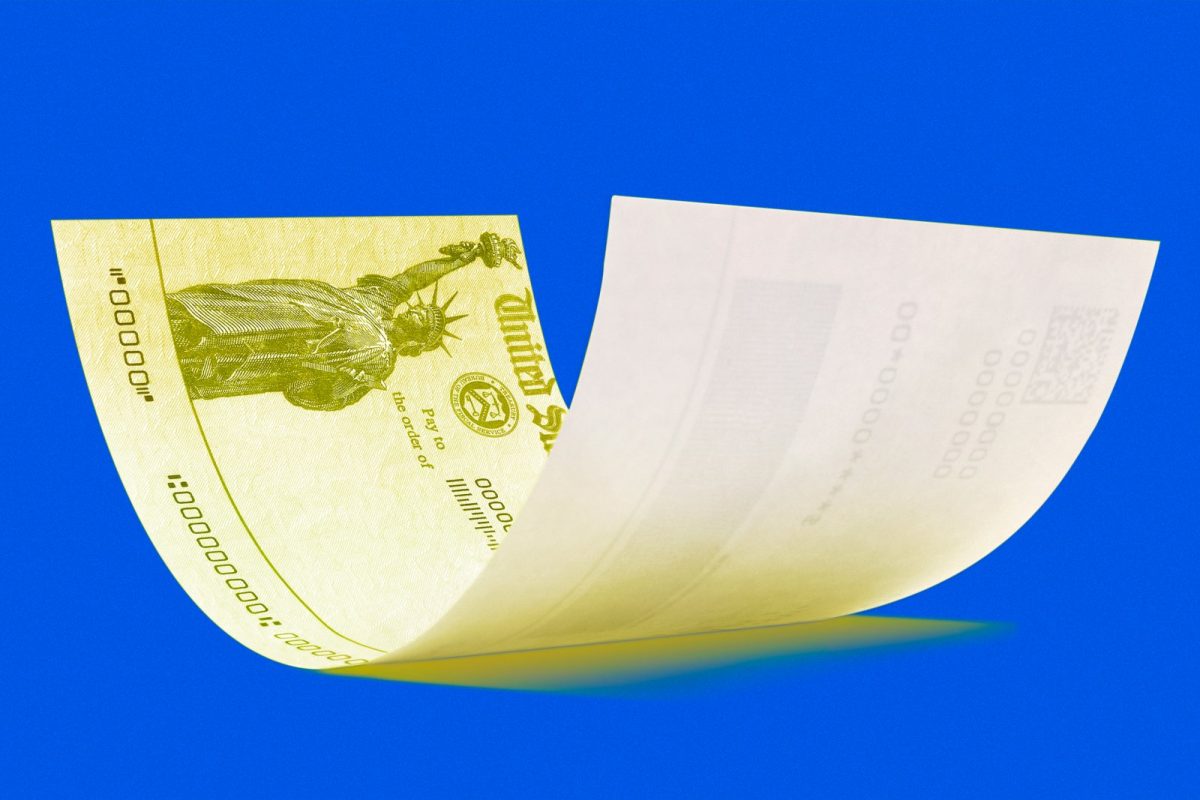Lifestyle, News trend
Here’s When Your Stimulus Check Should Arrive
Where’s your coronavirus money? Officials say the first $1,200 stimulus checks are on track to be paid the week of April 13.
That’s right: Somewhat ironically, the IRS will start sending direct deposit stimulus checks at almost the exact same time it normally expects people to file their taxes. (Tax Day is usually April 15, but the 2020 filing deadline has been moved to July 15 according to the $2 trillion coronavirus stimulus package.)
Yet while the first stimulus payments are expected to be sent to taxpayers in mid-April, it could take a lot longer for your check to arrive — assuming you meet the eligibility requirements.
As of Monday, March 30, the IRS said that “economic stimulus payments” worth up to $1,200 per adult would start being distributed “within the next three weeks.” A few days later, on Thursday, April 2, Treasury Secretary Steven Mnuchin — who oversees the IRS — said at a press conference that the timeline was shifting and the first stimulus payments would arrive in some if not most taxpayers’ accounts via direct deposit “within two weeks.”
What’s unclear, however, is when the last stimulus checks will be sent to taxpayers. Federal officials insist that the vast majority of stimulus check recipients will get their payments by early May if not the middle of April. But people who have not given their bank direct deposit information to the IRS and therefore must receive paper checks could see significant delays in their payments.
How to Get a Stimulus Check Faster
To get your stimulus check as soon as possible, make sure you do two things:
• File your taxes for the 2018 or 2019 tax year, if you haven’t already.
• Provide the IRS with your direct deposit information.
Your tax return includes your adjusted gross income and the ages of any dependents you claim. That’s all the information the IRS needs to determine if you’re eligible for a stimulus check, and how much you get. (It’s a maximum of $1,200 per adult, and $500 for every dependent 16 and under.)
The first coronavirus stimulus payments will be made directly to the bank accounts of taxpayers whose information is already on file with the IRS from the last time they did their taxes. That’s why you should make sure the IRS has your bank direct deposit details; if you haven’t given this information to the IRS, it could take a lot longer to get your stimulus check.
How to Give Direct Deposit Info to the IRS
It’s been widely reported that it could take upwards of 20 weeks for all of the paper check stimulus payments to be sent by the IRS. That would mean that some people wouldn’t get their checks until August or September.
The IRS says that most people owed stimulus payments — including those receiving paper checks — will get their money long before then. An IRS spokesperson told the Washington Post that the first paper check stimulus payments would go to people in the lowest-income bracket ($10,000 or less) starting April 24, and that more paper checks would be sent to higher-income individuals in subsequent weeks.
These people would theoretically get their payments quicker if the IRS could send the money electronically. At the end of March the IRS said in the coming weeks it “plans to develop a web-based portal for individuals to provide their banking information to the IRS online, so that individuals can receive payments immediately as opposed to checks in the mail.”
Since then, the IRS has yet to announce any further information about where and when people can provide their direct deposit information for faster stimulus check payment.
In the meantime, tax-prep software giant TurboTax has partnered with the IRS to offer a free stimulus registration program, where you can provide direct deposit details and other information that the IRS can use for payment processing. You’ll have to create an account with TurboTax (and subject yourself to the company’s marketing emails) to register this way. If you’re comfortable with that, go to this TurboTax page, scroll down a little, and click on “Register now” under the banner saying “If you don’t need to file your taxes this year.”

